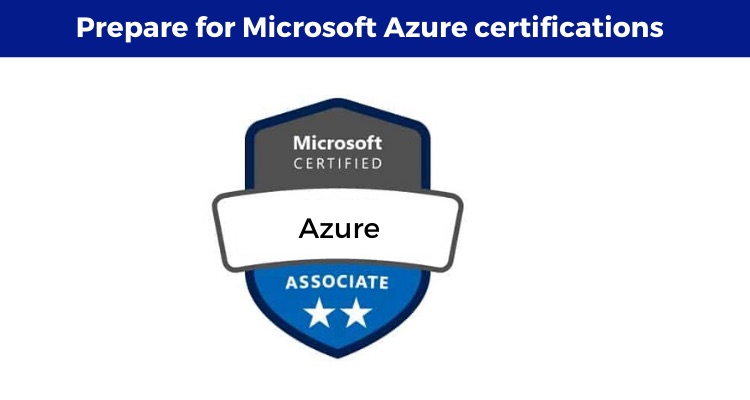Azure, also known as Microsoft Azure, is a cloud platform that provides a number of different services for businesses. These include cloud storage, IoT, security, machine learning, containers, database management, and more.
Microsoft Azure certification demonstrates that an IT professional is familiar with these tools and can help employers and clients integrate them into their own workflow. But is Azure certification worth pursuing? What types of certification are available? Read on, and we’ll explore what you need to know.
Table of Contents
A bit about Azure
Azure is one of several competing cloud platforms, also referred to as “infrastructure-as-a-service.” It is the second largest of these, with roughly 16% market share. That places Microsoft Azure ahead of Google Cloud (8%) and behind Amazon Web Services (33%).
The question to ask yourself when considering Azure certification then is whether you would be better served by Amazon Web Services (AWS) or Google Cloud certification. AWS is in most demand and Google Cloud is superior for machine learning, but Azure certification has many unique benefits of its own.

It boasts seamless integration with many of the Microsoft products and services that businesses are already familiar with. It also has an excellent, scalable pricing model that ensures users only pay for the services they need. As Microsoft is keen to point out, AWS is up to five times more expensive for many comparable services.
The best option for developers and IT professionals is to gain certification in all three of the major cloud platforms. As cloud computing is amongst the fastest growing technologies, this is a smart move for anyone looking to “future-proof” their CV.
Azure certification is also valuable on its own: for someone with experience looking to specialize, or someone looking to find work with a business that already relies on Azure.
What is Azure certification?
With Azure certification, a candidate will demonstrate they have the skills to help businesses integrate these cloud services into their products and workflow. This is a highly valuable skill set and may command a higher salary. That said, certification should always be considered as a way to “augment” a resume, with experience and qualifications taking precedent.
Also read: Microsoft Certification: A guide for tech professionals
There are 12 different types of Azure certification with associated exams. These include:
- Microsoft Certified: Azure Data Scientist – Associate Exam AZ
- Microsoft Certified: Azure AI Engineer – Associate Exam AI-100
- Microsoft Certified: Azure Developer – Associate Exam AZ-203
- Microsoft Certified: Azure Administrator – Associate Exam AZ-203
- Microsoft Certified: Solutions Architect – Associate Exam / Expert Exam AZ-300 / AZ-301
- Microsoft Certified: Azure Database Administrator – Associate Exam DP-300 (beta)
- Microsoft Certified: Security Engineer – Associate Exam AZ-500
- Microsoft Certified: Azure – Fundamentals Exam AZ-900
The right Azure certification for any given professional will depend on the nature of the work they are looking for. For example, a developer may benefit from an Azure Developer certification, whereas security specialists would be better served by the Security Engineer certificate. Professionals can also choose between Fundamentals, Associate, or Expert level exams. Fundamentals are often suggested as optional prerequisites for Associate exams.
Most Associate exams cost $165, making this a smart investment that should provide significant returns. Exams can be taken at physical testing centers or online. You can find more information and a full list of all Microsoft Certifications and exams here.
Is an Azure certification worth it?
For professionals, the question often is which cloud platform to gain certification with. Microsoft Azure currently owns a 14% market share in this sector, but Amazon Web Services (AWS) is the market leader with a 33% share. Google Cloud is another competitor that is particularly well-known for its focus on machine learning via the powerful “Tensor Flow” platform.
The bottom line is that AWS certification will appeal to the widest range of employers and will be the priority for many professionals. However, the more of these certifications you possess, the more companies will be interested in hiring your services. This is particularly true considering the wide use of other Microsoft services such as Office 365 and Teams among countless organizations. Microsoft remains an extremely popular choice due to its integration with many such tools, and because of its brand recognition.
Preparing for Azure certification
Those with no prior experience with Azure should educate themselves prior to taking an exam. There are lots of great online courses that will provide a full, comprehensive introduction to Microsoft Azure for beginners and pros alike. Many of these provide specific training and prep for the exams.
Savumin readers can get some big discounts on a number of Azure Certification courses. The Essential Microsoft Azure Certification Bundle is available for just $29.99 (a 97% discount) and includes all the materials you need to gain a broad knowledge of Azure.
